Enab Baladi’s Investigation Team
Mohammed Homs and Mourad Abdul Jalil
In the midst of media buzz, intensive publicity, and expectations to reach advanced stages in the 2019 Asian Nations Cup, the performance of the Syrian National football during the first two games was dull and the team failed to score any goal. As a result, the league removed German coach Bernd Stange and appointed Fajr Ibrahim instead. However, he did not manage to save the situation.
Following the last statement of the Syrian Federation for Football on 26 January, which announced the removal of the Syrian team’s technical and administrative staff and the appointment of Fajr Ibrahim as technical director, expressions of failure and defeat, such as “Do not have high expectations of Syrian sports, for it has been stagnating for 40 years. The failures and results have been the same at all levels. It will not develop unless it will cut loose from narrow mindedness, even if the names will be changed mechanism will remain the same, and so does failure,” were circulating among the Syrian fans.
Is it possible to change the Syrian football and the figures governing this game? Will the Syrian team be able to make it to Qatar 2022 finals for the first time in its history, or is it a difficult and far-fetched dream?
As the countdown to the 2022 World Cup in Qatar begins, football started preparations to take part in the championship. However, both lapses of the Syrian national team which took place during Russia 2018 finals and the humiliating exit from Qatar have caused many old wounds to open again. These lapses also impose a radical change, and a rejuvenation, and substitution process to trespass the “just for participation” circle in international forums.
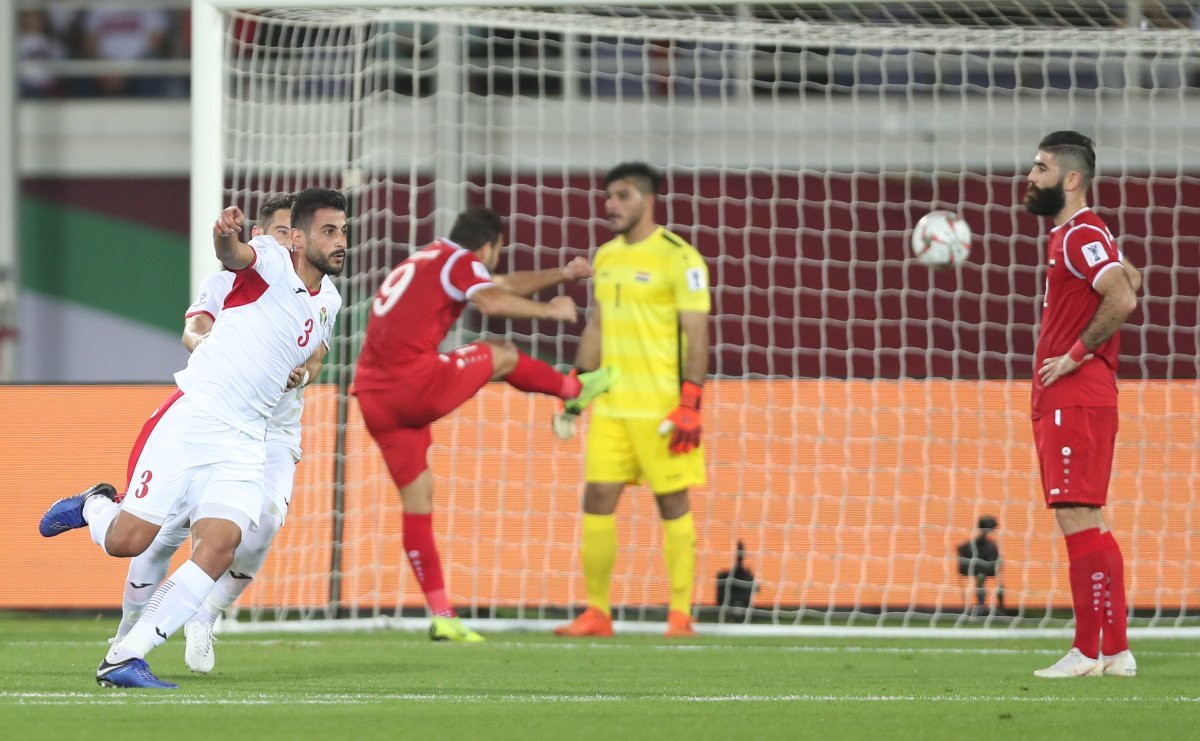
Jordan players celebrating after scoring for the second time against the Syrian team during AFC Asian Cup – 10 January (AFC)
Why isn’t Syrian Football evolving?
For officials Syrian sport is a tool they use to achieve political rather than sports goals. This is reflected through the statements of current or former sports officials about the real objective behind Syrian sports. Victory depends on the number of times the anthem was played.
The most prominent example of this is the problem, which had aroused when the Syrian and Qatari Football Federation were signing agreement last March causing the head of the Football Federation, Salah Ramadan, to resign following the request of Muwafaq Jomaa, the President of the Syrian General Sports Federation.
Despite the several benefits brought to Syrian football, this cancelled agreement triggered polemic war between Ramadan and Jomaa. The repercussions of this conflict have become evident following the failure of the Syrian team to win 2019 AFC Asian Cup. After the mass protests became intensive and the fans calling for the resignation of the General Sports Federation and Football Federation, Salah Ramadan, blamed Jomaa and his successor, the current head of the Syrian football Federation, Fadi Dabbas.
“I believe that politics and sports are two separate issues,” said Muwafaq Jomaa accusing Ramadan. During an interview with local radio station Sham FM, he stated that he and the country’s leadership “could not consider this in such a way.”
However, Ramadan replied saying that “sport serves the interest of the country’s policy and not the other way around. I refused to sign the agreement with Qatar so the Syrian flag would be raised rather than the flag of the mandate.” He further explained that “it is not about the Convention with Qatar or any other reason. It is meant to serve Fadi Dabbas hidden schemes and his choice to serve his personal rather than the country’s interest.”
Ramadan stated that “Jomaa asked me to resign and I responded to his request” and that he was asking everyone at the federation to resign. “I am sure a certain coalition was the reason behind my resignation from the federation,” Ramadan said.
After his resignation, Ramadan went to Lebanon to meet with the Asian Investigation Committee. He pointed out that he told the committee that he had voluntarily resigned. “If I submitted my resignation for political reasons, then sport would have reached an end in the country.”
The Syrian General Sports Federation banned Ramadan from traveling. However, he managed to agree with Jomaa to leave Syria for Lebanon. When he returned to Syria, the ban came back. He said that “everything is being attributed to political leadership, but this is not true. Muwafaq Jomaa is the one making every single decision.”
According to Ramadan, Jomaa refused playing in Qatar and the political administration has nothing to do with this. He pointed out that the former coach of the Syrian team asked to play in Qatar, UAE or Jordan, but the answer highlighted the need to play in the UAE because “some people have interests with the UAE. However, the UAE refused.”
According to Muwafaq Jomaa, victory in sports depends on the number of times the Syrian flag was raised outside the Syrian border and the number of times the national anthem was played.
Jomaa responded to reports claiming that Syrian sport has earned fanciful “golden” medals between 2011 and 2018, saying that “the flag of national sovereignty, which is represented by the first sovereign symbol, Bashar al-Assad and the Syrian Arab Army, is the target.” He also pointed out that “during this war the flag was raised 1985 times outside Syria, while the anthem was played 683 times, and this is the message.”
Football in Syria, professionalism … or corruption?
The professional reality in the Syrian sport is one of the most complex problems facing players, coaches and even directors, because of the many barriers that makes pursuing one’s football pro career an impossible matter that needs to be reconsidered.
At the level of clubs and national team, Syrian sport is unable to direct its players to pro career amid the reigning unorganized investment atmosphere. The professional reality was formulated in 2010 following the legislative decree, which was not fully implemented. What corresponded to the reality of sports leadership were the only things implemented, and this was negatively reflected on the Syrian clubs, and made the poor ones poorer
During an interview with Enab Baladi, Abdul Kader Abdul Hay, former player at al-Ittihad and the Syrian team stated that according to the Syrian players’ mentality true professional is far-fetched, since they did not go through the actual experience at the club and team levels and any attempt to pursue pro career in Syria is formalistic.
Tarek Jabban, former assistant coach of the Syrian team, tackled pro football career saying that Syrian football is still far from the concept of professionalism, and the current one is largely imposed on the players by providing a certain amount of money. The local concept of professionalism is a contract signed between the club and the player, according to the public newspaper Tishreen.
Jabban believed that the Syrian football disregards other fields which need to be handled with professionalism, most importantly the administrative work. This disregard is in terms of the selection of professional administrative staff to handle all aspects of administrative work, upgrade the field’s technical situation, and ameliorate the arbitration structure into perfectionism.
Abdul Hay stated that “the Syrian professional mentality is still unable to overcome its closure due to authoritarian management boards in football clubs and teams and the presence of military and parties’ leaders, who are not sportsmen, in charge. The Syrian players become aware of the gap when they move to play abroad, where they realize the difference and experience the openness of professionals there. For that reason, they are transformed to stars outside Syria.”
The former Syrian international footballer added that “some other footballers abroad have become relatively familiar with the true meaning of professionalism as they had joined the Arab and European clubs with formal professional management methods, and realized that the violation of any item of the agreement results in specific penalties.”
Nader al-Atrash, the president of the Syrian football Federation, told Enab Baladi that when issued, the laws of professionalism were considered as avant-gardist in Syria as in Europe. However, regional political leadership did not like the situation and hindered the application of these regulations. Such position was the result of concerns that football fans will line up behind football clubs with independent administrations in isolation from the regional leadership, and this will cause the ruling party to lose a lot in this aspect, as it will no longer have a powerful influence over sports in the country.
According to al-Atrash, although the law of professional football in Syria was superficially applied, it became a burden on clubs, unlike what was expected. As such, major football clubs were able to make contracts with more players and recruit foreign footballers, in contrast to the poor clubs that have signed hampering agreements with local players. By all means, footballers in Syria engaged in a process of contracts hunt in order to serve their personal interests.
Abdul Hay also commented that there is no football professionalism in Syria at all, but it can rather be described as “a deviation from real professional sports deals, which must be based on real items and details to guide both the footballer and the management at the same time.”
Al-Atrash indicated that if the law had been properly applied, the situation of sports in Syria would have been revived in favor of football clubs and the national football team, starting with the condition of teams, television broadcasting, and the freedom to make sponsorship contracts.
Abdul Hay explained that due to the absence of a professional mentality, the culture of military rule and favoritism has stained the footballers’ way of thinking and affected the management of clubs as well as the national team performance, pointing out that many examples prove such assumption; most recently, the captain’s armband incident in the Asian Cup.
Poll: Corruption and favoritism hinder the prosperity of teams
A poll conducted by Enab Baladi on its website showed that the Syrian public considers corruption and favoritism as the factor that caused the deterioration of Syrian football most.
78 percent of the 200 respondents said that the lack of professional mentality was the reason behind the problem, while 9 percent confirmed that the Syrian football arena lacked talents.
Rami al-Suwaidi, one of the commentators on the question on Enab Baladi’s Facebook page, asserted that the three reasons suggested in the poll are valid; while Jamal Mustafa conveyed that “there exists and there will exist no sport in Syria” as long as the political leadership is still ruling. Thus, most of the people who expressed their opinions via Facebook agreed that sports officials in Syria constitute the main problem.
Ghassan Krimish, said that the Syrian football used to be in the lead at the level of the Arab region and, in general, the sports field in Syria was active and advanced” until al-Assad regime took charge and worked to destroy such achievements. The access and integration of players in the national team was confined to the regime’s most loyal elements and those who are known to be affiliated to the ruling party and its entourage, with no regard to the factor of talent.
Successful experiences: From the bottom to the top
The two experiences, which can be compared to Syrian experience, are the experience of the Belgian football team in the 2018 FIFA World Cup held in Russia, and the experience of the Qatari team during the Asian Cup finals held in the UAE.
The Asian Cup ended with the victory of the Qatari national football team for the first time in its history, after competing against Japan and without receiving any goal from the adversary team. Thus, the Qatari team’s achievement was unprecedented as no other winner of the Asian Cup has managed to beat this record.
The excellence of the Qatari experience has begun with the establishment of a strong platform to build a new football generation capable of competing with international football teams such as Korea, after its historic victory against Germany several months ago at the 2018 World Cup; in addition to Japan, the only Asian team to reach the knockout stage which has almost attained the quarter-finals had it not been for Belgium’s resilience in the Belgium “remontada” match.
Aspire Academy: A Qatari nucleus for quiet hard work
Qatar has been working on its potential in football since the establishment of Aspire Academy, one of Aspire Zone’s branches, which was established in 2004, to play a pivotal role in building a sports tradition for Qatar. Aspire Academy works to discover football talents at home and abroad, in 14 countries, testing nearly 600,000 children in 950 regions in developing countries of Africa, Latin America, and the Far East.
Qatar won the AFC U-19 Youth Cup in 2014 for the first time in its history with footballers who have been scouted, trained and endorsed by the academy. Later on, these footballers were sent to European football clubs such as Atletico Madrid, Villarreal, Real Sociedad and Real Madrid in Spain, Celtic F.C of Scotland, K.A.S Eupen of Belgium, Red Bull Salzburg of Austria, and A.J Auxerre in France.
The most remarkable aspect about the Qatari team is that it has been slow over the years, and it went through several setbacks before its successful re-emergence. The Qatari football team has left the last World Cup empty-handed and lost international games. However, Qatar has gained a cohesive young team that marked an outstanding presence in the Asian Cup.
The generation of footballers, who played in the Qatari team in the 2014 Asian Cup, was the most effective. Eight players among this team are currently integrated in the Qatari national football team. Among those players, whose talents have been trained and nurtured since childhood, we find al-Mu’iiz Ali, Akram Afifi, Salem al- Hajiri, Assem Madibo, Tareq Salman, and others.
What makes this team a distinctive one is the young age of its players who participated in the Asian sports event. The youthful Qatari team is composed of 14 footballers under the age of 25, including 11 players, under the age of 23, who belong to the Olympic team.
After collapse, Belgian team heads to the top
The Belgian experience, which is considered as the most prominent success story in football at the moment, has managed to nurture and forge Belgian football talents in order to upgrade Belgium’s football tradition to the furthest extent.
The Belgian team reached the semi-finals and won the bronze medal at the World Cup, but what happened was not a coincidence or a stroke of luck. It was rather planned, as it reached its lowest position in 2007 when it was ranked 71 in the world ranking, but that has changed completely, and today it is occupying the top of the pyramid hierarchy for two consecutive months.
Since the Belgian team, known as the “Red Devils” was out of the 2002 World Cup, the national team has not participated in any international competition either in the World Cup or the European Cup, and remained for 12 years out of official championships, until the finals of the 2014 World Cup in Brazil when it was hardly defeated by the Argentine team.
After 2002, the Belgian team suffered from a lack of talent and the retirement of stars, mainly Marc Wilmots, and there was no generation of good players. Thus, to rebuild the team, it was necessary to start with young kids. Anderlecht Club, Club Brugge KV, Standard Liege Club and K.R. C. Genk have worked to discover new talents and bring them to Europe. These clubs paved the way for the appearance of Kevin De Bruyne and Thibaut Courtois at the Genk Club, Christian Benteke, Kevin Mirallas, Marouane Fellaini in Standard Liege Club, Kompany and Lukaku at Anderlecht Club.
Belgian clubs have begun to bring these talents into Europe to become professional in their big clubs. The Belgian team has never seen so many professionals in the big clubs. Today, about 15 Belgian players are playing for clubs in the English Premier League, including 10 players called to represent the national team.
The stars of the Belgian national team were promising in 2002. Since their childhood, the pictures of Eden Hazard, Kevin De Bruyne, Lukaku, Vincent Kompany, and Dries Mertens were on the pages of newspapers. They were the same players who wrote Belgium golden history at the World Cup.
The outcome of the Belgian football long-term vision began to appear at the 2008 Beijing Olympics, where the team ranked fourth position, then developed and reached the highest level in the history of Belgian football today.
The teams of Qatar and Belgium share two things in common. The first is taking care of talent since its inception and the second is raising it with a sports education based on three principles,: professionalism, respect for arbitration and respect for the opponent. These principles guarantee the players’ commitment and continuity in one level without fluctuation.
Syrian football: Few achievements
The disappointing results of the Syrian team outnumber its few achievements. Despite the presence of names and talents of football which may be considered big in the earlier history of Syrian football, such as Malek Shakuhi, George Khoury, Nizar Mahrous, Walid Abu al-Sel, and Abdul Kader Kardaghli, or currently like Firas al-Khatib, Jehad al-Hussain, Omar al-Somah and Omar Khribin, the Syrian national football team did not make any significant achievements, whether on the Arab, continental, or international level.
The national football team record was not long in the football competitions, with the exception of two titles: the first was the gold medal of the Mediterranean Games held in Lattakia in 1986, but Ironically, since then, the team has not participated in the competition which takes place every four years.
The boycott of the championship was ordered by the country’s leadership to preserve the gold medal and ensure that it is not lost, the sports journalist Orwa Kanawati told Enab Baladi.
The second title was the West Asia Championship in 2012, when the Syrian team has achieved a victory over the Iraqi team with one goal.
On the international level, the Syrian team participated 14 times in the World Cup playoffs, but none of them were successful in qualifying for the football event, although it was close twice. The first was in the 1986 World Cup when the Syrian team reached the final round of the Asian playoffs but was defeated by Iraq in the two matches, and the second time was in 2018 World Cup playoffs, when the team reached the Asian playoffs for the first time, but it came out with a draw and a defeat against Australia.
The team has played in the playoffs since its first match in 1958 to the last season, 101 games, where it won 45 matches, tied 23 times and lost 33 matches.
As for the Asian championships, the Syrian team participated six times in the Asian Cup, the latest was in the last Asian Cup in the UAE, but what distinguishes the six participations is the failure to skip the group stage.
The team played 21 matches in the Asian finals since its first participation in 1980. It won seven matches, tied three times, and lost 11 times.
Syria’s emerging talents around the world
Syrian football does not lack talent, but lacks care and attention to those talents. Since 2011, hundreds of thousands of Syrians have fled to Europe to escape the war. Dozens of youth and young people have emerged in various sports, including football, and several names that attracted media attention, because of their skill and talent, have emerged.
These players can represent the Syrian national football team in the future, unless they wish to join other teams. These names include:
Talented player Ahmed Al – Zaher
The Syrian kid Ahmed Al-Zaher attracted attention when he was seven years old, in 2015, after he presented magical abilities in football, and many international and local channels have begun to display video reports about him after they watched him training in the parks and streets. In 2016, he was named the best player in the local Cross KlinKia Championship in Germany.
Al-Zaher plays for capital team Hertha Berlin, where he gained the title of the top scorer in 2017 and the best player in 2017 and 2018.
Bahjat al-Nayef Player
The young Syrian player Bahjat al-Nayef, 18, took the spotlight with Turkey’s Osmanlıspor football team after joining it during a trial period during which he participated in a training camp where he caught the attention of a number of Turkish teams, according to the Turkish Daily Sabah.
The newspaper expected that al-Nayef’s talent would make him join one of the major teams that rely on bringing and developing talents, and then selling them for large sums of money to European clubs.
Zain Said Bayazid
Beyazid is one of the talents who has proven himself in Germany, prompting the Academy of Hoffenheim, which plays in the Bundesliga Premier League, to sign a contract with him.
The signing of a contract with Zain, the son of former international player Said Bayazid, came after he showed his high potential in a local championship that was held in September 2018, and won the title of top scorer.
Said Bayazid, 11, is the second Syrian talent with whom the German Premier League clubs have signed a contract after Ahmed al-Zaher.
Jalil Elías
Syrian young man Jalil Elías played for the Argentine sports club Newell’s Old Boys as a defensive midfielder before joining Goody Cruz sports club.
Elías has been named “La Joya” (the jewel) as the best player in his club. He gradually played in all divisions of Newell’s Old Boys reaching the first division when he was only 18. He joined Goody Cruz in the last season on loan.
How does Syrian football benefit from its talents?
Most of the emerging Syrian talented players are still young. Many questions are raised about whether they will join the Syrian national team in the future, and what will motivate them to play for the national team. Will they be supported by the football leadership, or will they have the same fate as player George Mourad?
In every Asian tournament, a number of young Syrian players emerge, but they quickly disappear for reasons of fitness, professionalism, and other reasons. This is why the Syrian team is losing many young talents that would push it forward.
Syrian sports journalist Bassel Hamdou believes that it is most important to work on the issue of continuity in the Syrian football. This means paying attention to sports in schools since childhood. At the very least cases, paying attention to the emerging and young teams that compete in the World Cup, and working on maintaining their level with time until they reach the progress of the men’s stage. This can be achieved by stabilizing the player’s potential, speed, and fitness.
However, many Syrian players who played football abroad in European and other schools have been reluctant to join the national team or to accept to its invitation to join it, due to ill-treatment and mismanagement. The first matter that a Syrian player playing abroad takes into consideration is the experience of his fellow players with the Syrian administration, as was the case with George Mourad, according to journalist Bassel Hamdou. The journalist also pointed out that the attraction of the player Mourad needed no more than a simple treatment, although he had made good effort in Europe. It is crucial to treat the players well so as to create a good reputation that would make them accept the national team’s invitation and not resort to joining other teams abroad.
Hamdou also pointed out to the experience of the player Mahmoud Dahoud in Borussia Dortmund sports club, and his brother Said. Said Dahoud joined the Syrian national team, unlike Mahmoud who is waiting for a chance to play for the German national team. For Said, the Syrian team is the second choice because he is a high-level player who does not want to spoil his talent.
On the benefit of the Belgian and Qatari experience from the talents, the President of Syrian Football Federation, Nader al-Atrash, said that Syria has very distinctive age groups. However, the sports leadership does not want to admit that because of the revolution, the sports activity has been hindered. As a result, the age group and the schools league have been abolished and this has become limited to the formation of the national team through the recruitment of players from the clubs. This education requires the academies, supported by the state and the Federation to attract and train these talents.
According to Hamdou, there will be no role for Syrian football if there is no distinctive management, and if all those who have political power will not be removed from the leadership of sports. This is because a politician cannot be fully devoted for sports. The journalist cited the example of Maj. Gen. Mowafaq Jumua, who said that “politics is more important than sports.”
In order to fully develop the Syrian football, it is crucial to rely on those refugees who play in the right environment, and benefit from this generation after 10 or 15 years as in the experiences of Morocco, Tunisia and Algeria. These players are ready and they only need a strong coach who understands the environment in which they played and find a match between the players and the schools they played in, according to Hamdou.
Possibilities of applying the Qatari experience in Syria
All those Enab Baladi interviewed agreed that it is impossible to apply the Qatari experience in Syria, due to the Syrian sports mentality. Al-Atrash considered this is “beyond imagination.” The qualification for the World Cup in Qatar is not only related to the men’s team, but it is generally linked to “the structure and the form of work, and the reality of sports work through the construction of a real sports institution, especially in the field of football. The Football Federation is not independent at all, and its decisions are issued from sources from the General Sports Federation and the country leadership behind it.
Former Syrian player Abdelkader Abdel Hay stressed that “the Qatari experience cannot be applied unless the leaders, who are not sportsmen, change, and a real professional system derived from the European example is developed and applied without the intervention of no one other than specialists. This could be possible through forming a sports committee or a ministry of sports and developing a clear and long-term strategy to promote Syrian sports.”
The development of the Syrian football must be accompanied by a complete reformation of the state, according to the head of the General Commission of Sport and Youth in Syria, Dhelal al-Muallim, who added: “We will benefit nothing from relying on the figures that emerged under a dictatorship regime.”
Al-Muallim added that Syria nowadays needs a change in approach of action, leadership, and planning to start over, and “so that we can say that we are capable of reconstructing the country and building the sports sector again.”
According to al-Muallim, Qatar has worked with a long-term strategy and high potential to enter the world through sports, relying on local and external experiences in all aspects, even in terms of naturalization of players. The Qatari idea has been based on two matters. The first is the availability of financial support while he second is the desire to introduce Qatar to the world despite its small geography and small population.
if you think the article contain wrong information or you have additional details Send Correction
النسخة العربية من المقال
-
Follow us :
Most viewed
- Challenges paralyzing electricity sector in Syria
- Negotiations between SDF and Damascus: Agreement on generalities, disagreement on details
- Peace under pressure or division... What are Israel's plans and tools in Syria
- Damascus governorate prohibits motorcycle traffic
- Turkey’s military attaché begins duties in Damascus












 Illustration (designed by Enab Baladi)
Illustration (designed by Enab Baladi)





 A
A
A
A
A
A

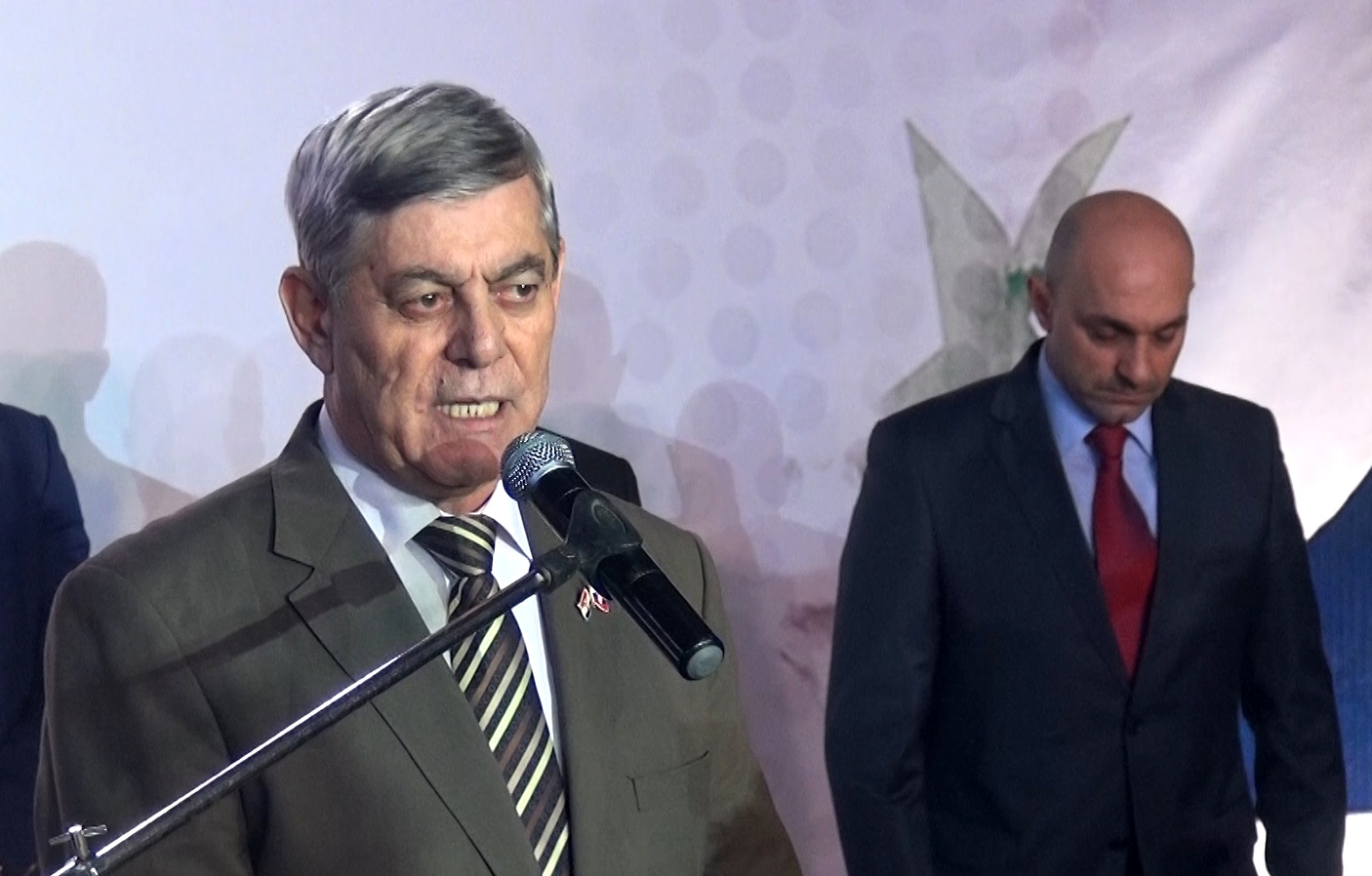
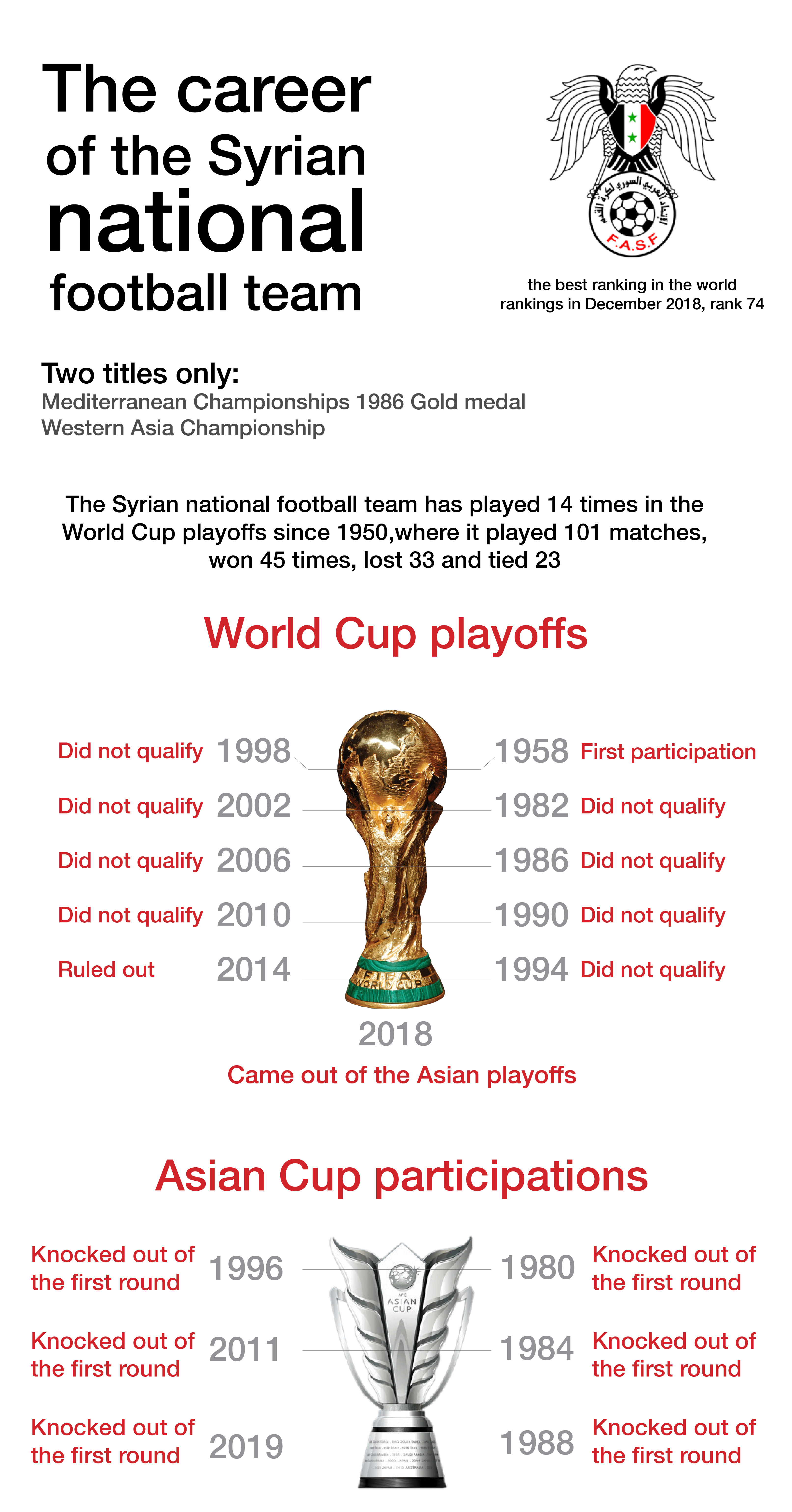
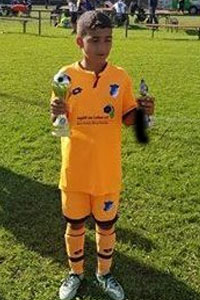
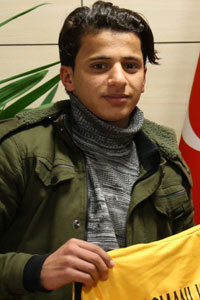
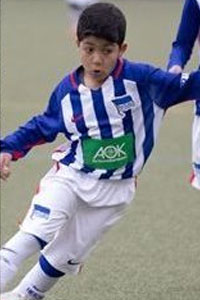

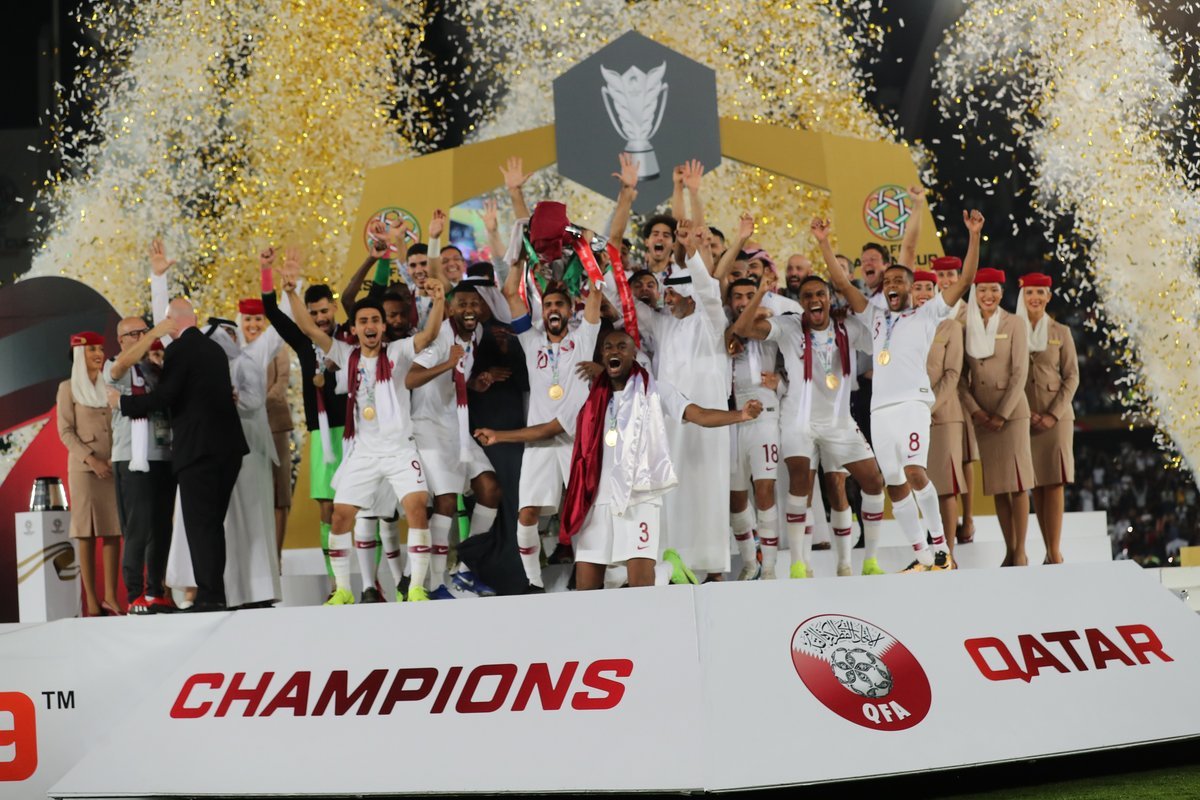



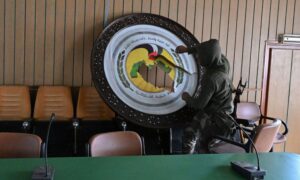
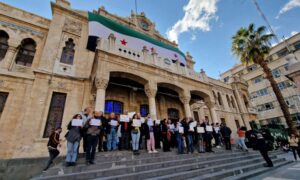
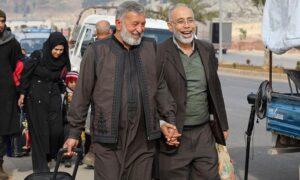
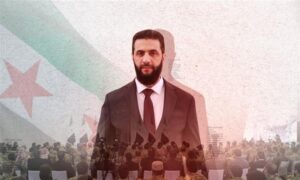
 More In-Depth
More In-Depth